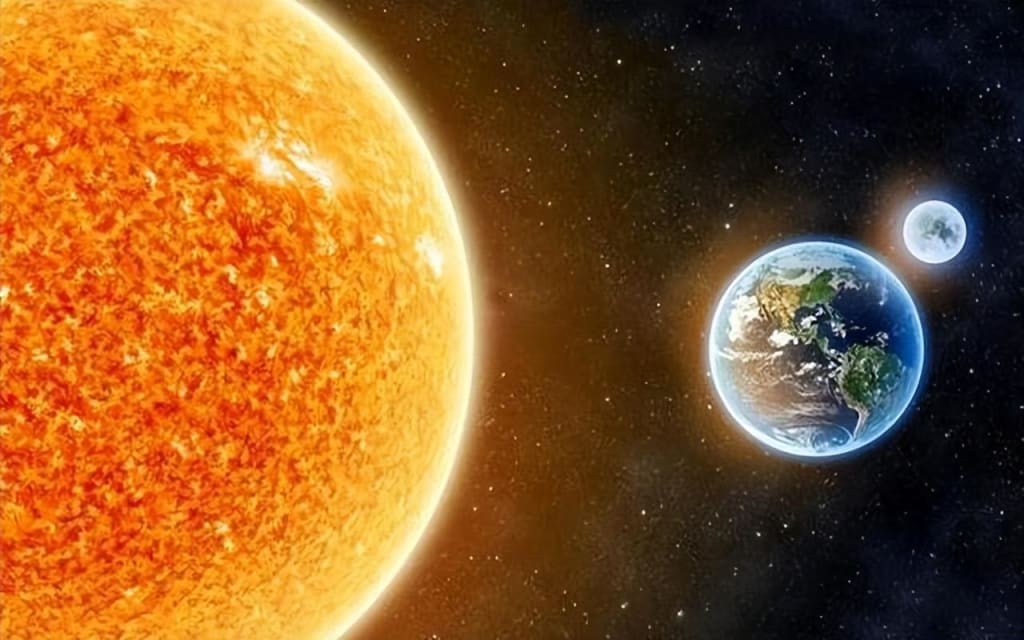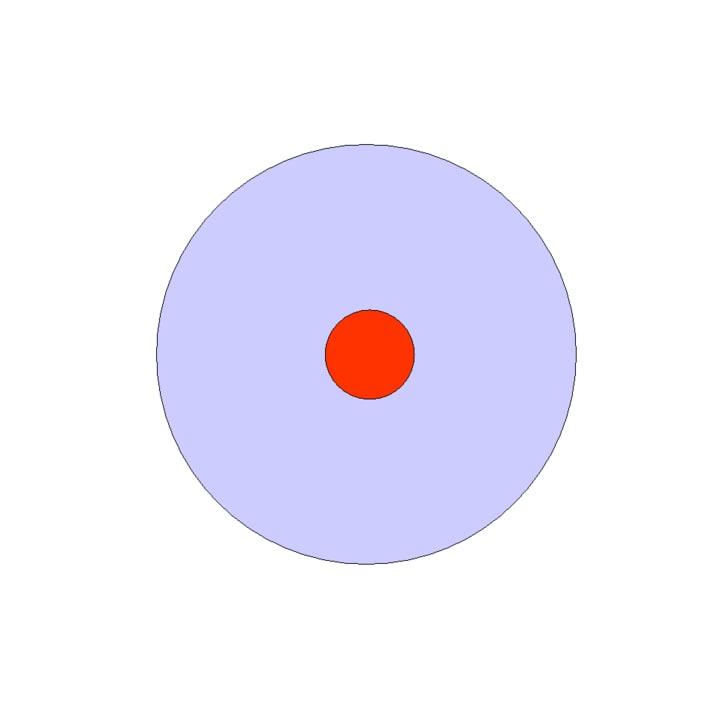
The sun means everything to human beings and the earth. Almost all the energy on Earth comes from the sun, the most obvious is solar energy, but in fact, wind, water, coal, oil and natural gas and other chemical energy are solar energy in nature.
But stars don't last forever, and our sun has a lifetime, too. The life of the sun is about 10 billion years old, and the current age of the sun is about 5 billion years old, middle-aged, is the best time in the sun's life, but also the blessing of human beings!
But the sun will eventually come to an end, and although that day is very far away, it is necessary to prepare for it.
The sun consumes four million tons of hydrogen every second, which fuse into helium. Four million tons may seem like a lot, but when it comes to the sun, it's a drop in the bucket. But as time marches on, the hydrogen fuel will eventually run out.
As hydrogen fuel becomes less and less available, the sun becomes more and more unstable and slowly dies. The sun's current stability is due to the balance of two forces, inward and outward.
The sun is undergoing nuclear fusion, a process that produces huge amounts of energy that radiates into outer space, and this process creates enormous external thrust.
And since the sun has a huge mass, that means there's a huge gravitational force, trying to pull the sun inward.
If these two forces reach some balance, the sun will remain stable and burn forever, and this is the present state of the Sun.

And when the balance of these two forces is broken, the stability is completely broken, and the sun goes crazy. And that day will come.
Because as hydrogen fuel gets scarcer, fusion becomes less powerful. After about 3.5 billion years, the external push from solar fusion could no longer compete with the powerful gravity, and gravity took over, dragging the solar material inward and announcing the sun's death!
At this point, the sun will become a red giant, dramatically expanding in size and increasing in brightness. The sun gets about 10 percent brighter every billion years, and by the time it reaches the red giant stage, the sun is so bright and radiating so much energy that the Earth is long gone.
All the oceans on Earth would evaporate and the planet would become a dead planet.
If humanity is lucky enough to continue civilization this far into the future, we must be well prepared to leave Earth in search of a new home before the sun becomes a red giant.
And we don't need to worry too much, after all, that day is still quite far away, human beings have enough time to develop science and technology, and then leave the Earth, in the vast space to find the second Earth, to establish a new home!
The sun became a red giant in the distant future, but it does not mean that human beings can live quietly on the earth all the time. All kinds of uncontrollable and unpredictable factors may cause a fatal blow to the earth at any time, and even bring the end of human civilization.
Jupiter and Saturn have hundreds of moons, so there's not just one of them, there's a lot of them.
Of course, it's hard to replace the perfection of the Earth today, but humans with the intelligence could transform the families of Jupiter and Saturn's moons with high technology.
The Earth is protected by a magnetic field that can protect humans from deadly cosmic rays. Those moon families are also protected by magnetic fields, the powerful magnetic fields of Jupiter and Saturn.
The Earth is protected by a magnetic field that can protect humans from deadly cosmic rays. Those moon families are also protected by magnetic fields, the powerful magnetic fields of Jupiter and Saturn.
Therefore, it is necessary for human beings to prepare for the rainy day, which is what writers have been doing today: to find the second Earth, to establish the second home of human beings!





Comments
There are no comments for this story
Be the first to respond and start the conversation.